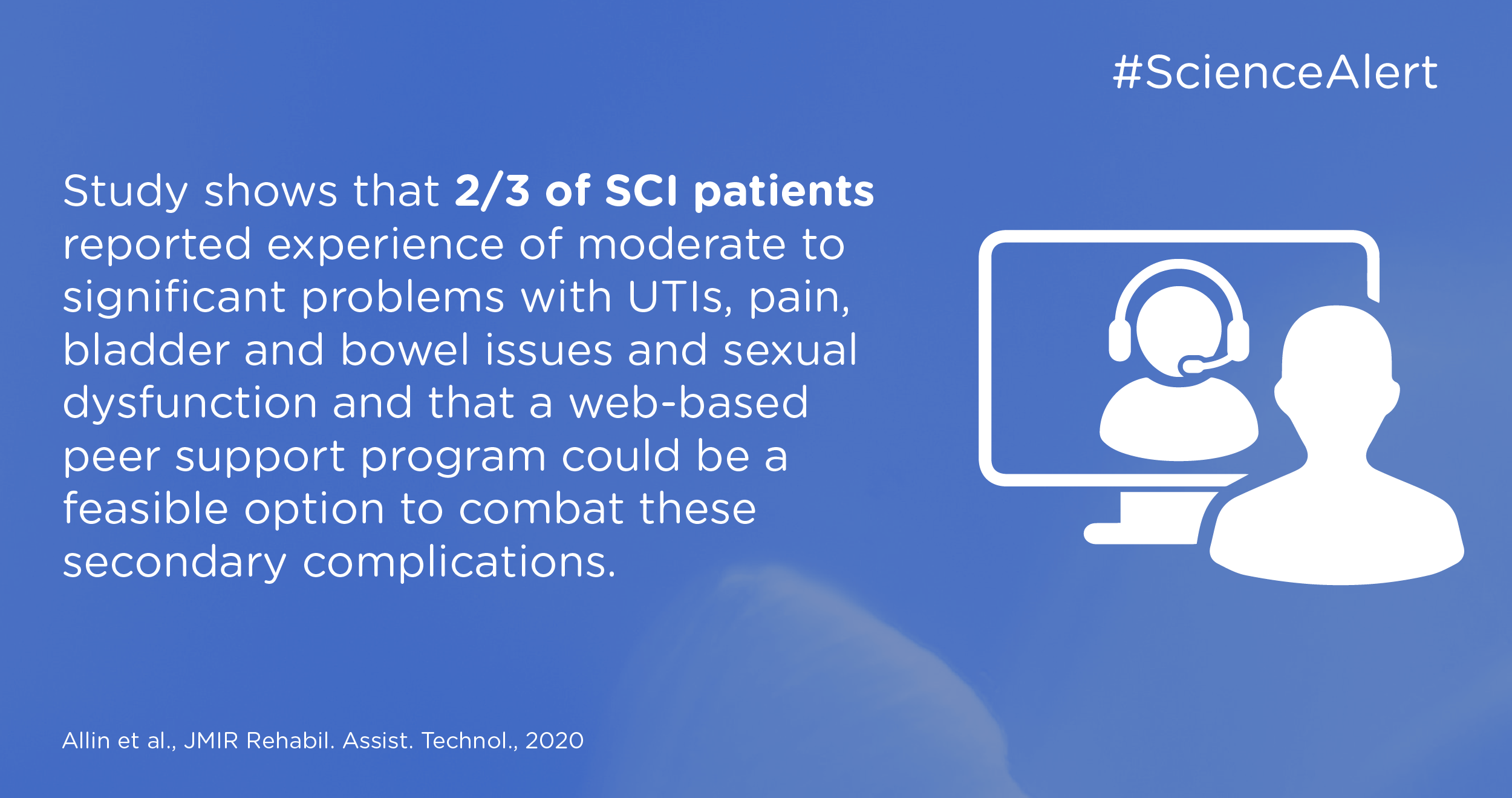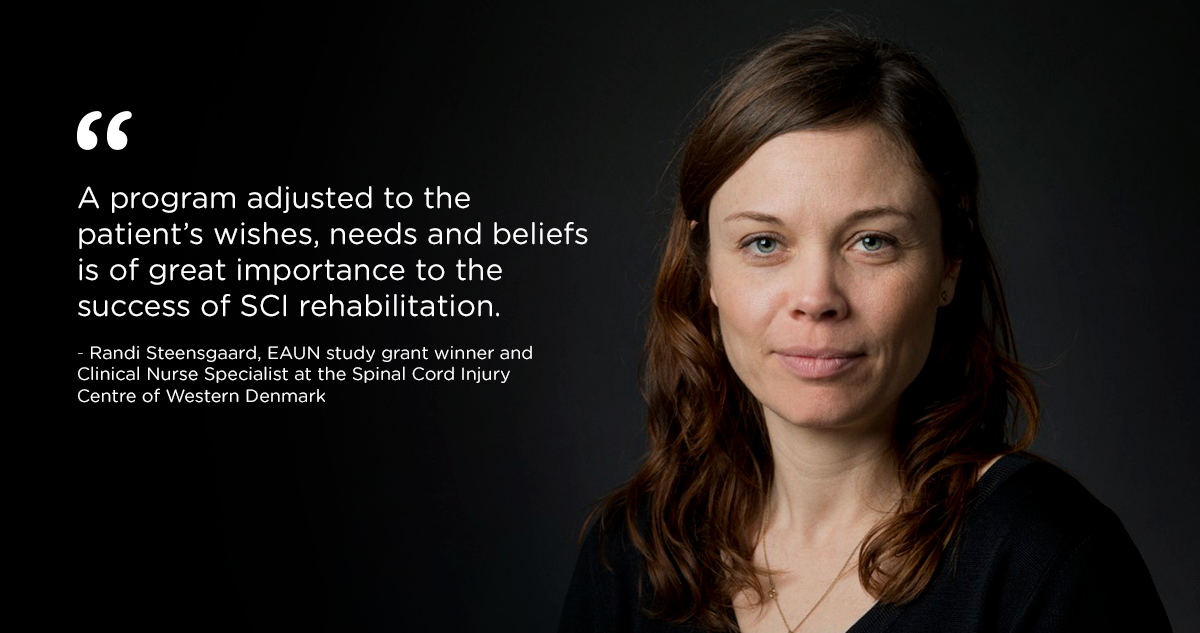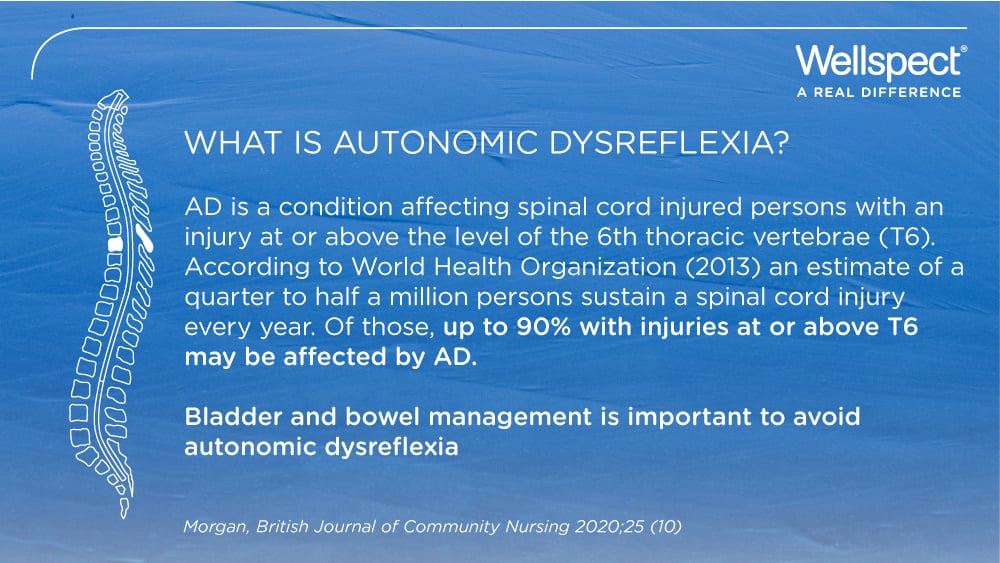In this article Allin et al. explores the feasibility and potential impact of health-coaching support for individuals with spinal cord injury (SCI).
Read MoreTopics: Spinal Cord Injury
What can a Wellspect study grant do for you as a healthcare professional? Recent winner of the EAUN study grant, sponsored by Wellspect, Randi Steensgaard, Head of Clinical Nursing Research from Denmark, is making a valuable contribution to Spinal Cord Injury care and research, supporting patients to lead a meaningful life.
Read MoreTopics: Study grant, Spinal Cord Injury, rehabilitation
Neurogenic bowel dysfunction (NBD) with symptoms of constipation and fecal incontinence is a common complication of traumatic spinal cord injury. In a new study, the aim was to identify factors that could predict the recovery of independent bowel function to assist clinicians in their prognosis of bowel function and to guide them to bowel management strategies useful for the patient.
Read MoreTopics: Bowel management, constipation, Spinal Cord Injury, neurogenic bowel dysfunction
Autonomic dysreflexia (AD) is a condition that may affect as many as 90% of spinal cord injured patients with injuries at or above the 6th thoracic vertebrae. This review aims to increase the knowledge and understanding of AD to ease management of the condition.
In this review, the author describes the prevalence, cause, symptoms, assessment and management of autonomic dysreflexia (AD). A spinal cord injury at or above the 6th thoracic vertebrae may cause AD in up to 90% of the cases. AD is an episodic uncontrolled elevation of systolic blood pressure of more than 20 mmHg that is caused by a noxious stimulus below the level of injury. A noxious stimulus can be a distended bladder or constipation and it is therefore important to have a good bladder and bowel management in place.
Read MoreTopics: Neurogenic bowel, Spinal Cord Injury






